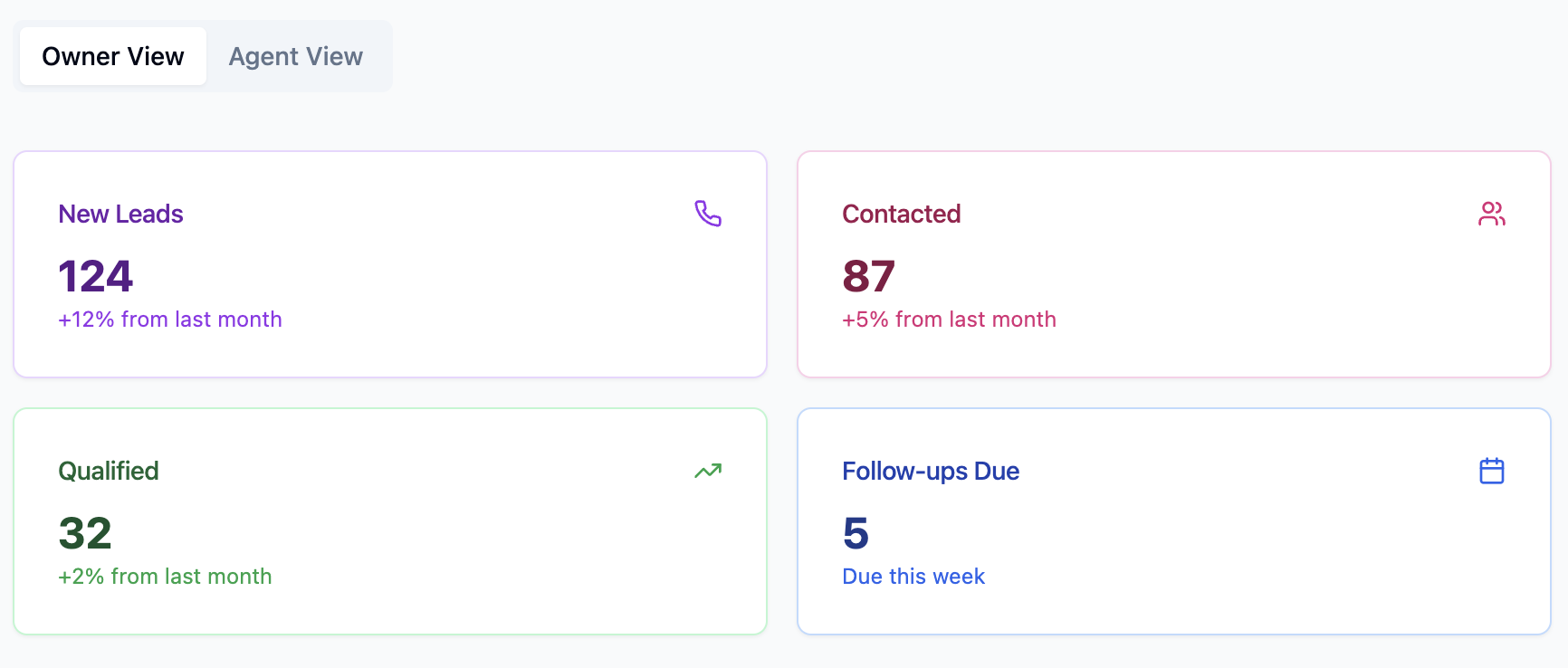CRM Database Meaning: The Foundation of Your Real Estate Success, Powered by Glue Sky’s Intelligence

In the world of Customer Relationship Management (CRM), the term “CRM database” is fundamental. Understanding the CRM database meaning is crucial for any business, especially in relationship-centric industries like real estate, where managing vast amounts of information about leads, clients, properties, and interactions is paramount. At its core, a CRM database is more than just a digital address book; it’s the central repository of all customer-related information, structured to provide insights and drive actions. For real estate professionals using advanced platforms like Glue Sky, this database becomes even more powerful when coupled with AI-driven outreach and automation, transforming raw data into tangible business opportunities.
This guide will delve into the CRM database meaning, explore its key components and functionalities, highlight its importance for real estate, and illustrate how Glue Sky leverages its CRM database, enhanced by AI, to help agents and agencies thrive.
Defining “CRM Database”: What Does It Mean?
A CRM database is a structured collection of information about a company’s customers, potential customers (leads), and all interactions with them. It’s the heart of any CRM system, designed to organize data in a way that makes it easily accessible, manageable, and actionable.
The “meaning” of a CRM database lies in its ability to provide a unified, 360-degree view of each contact. Instead of information being scattered across spreadsheets, email inboxes, notepads, and individual agent memories, the CRM database centralizes everything.
Key Information Stored in a Real Estate CRM Database:
For real estate professionals, a CRM database typically stores a wide array of information, including but not limited to:
- Contact Details: Names, phone numbers, email addresses, physical addresses, social media profiles.
- Demographic Information: Age, family status, occupation (where relevant and ethically obtained).
- Lead Source: How the contact was acquired (e.g., website inquiry, Zillow, open house, referral, IDX website).
- Interaction History:
- Records of all phone calls (often with notes or even dialer logs).
- Copies of sent and received emails.
- Logs of SMS/text messages exchanged.
- Notes from meetings or conversations.
- Website activity (e.g., pages visited, properties viewed, if integrated).
- Property Preferences (for Buyers): Desired location, property type, price range, number of bedrooms/bathrooms, specific features.
- Property Details (for Sellers): Address of property to be sold, estimated value, selling timeline, motivations.
- Relationship Mapping: Connections between contacts (e.g., spouses, family members, business partners).
- Deal/Transaction Information: Stage in the sales pipeline, property involved, offer amounts, key dates (e.g., closing date), associated documents.
- Task & Activity Management: Scheduled follow-ups, appointments, reminders related to the contact.
- Communication Preferences & Consent: Opt-in/opt-out status for different types of communication.
- Segmentation & Tags: Custom labels or categories to group contacts (e.g., “Hot Buyer,” “Past Client – Seller,” “Investor,” “Sphere of Influence”).
The CRM database meaning is intrinsically linked to its ability to hold and organize this rich, multi-faceted data in a structured and usable format.
Why is a Well-Structured CRM Database Crucial for Real Estate?
The importance of a robust CRM database for real estate agents and agencies cannot be overstated:
- Centralized Information Hub: Provides a single source of truth for all client and lead data, ensuring everyone on a team (if applicable) has access to the same, up-to-date information. This is key for any real estate CRM system.
- Personalized Client Service: Access to detailed history and preferences allows agents to tailor their communication and service, building stronger relationships and trust.
- Efficient Lead Management: Enables systematic CRM lead management by tracking leads through the sales funnel, ensuring timely follow-up, and preventing leads from being forgotten.
- Targeted Marketing & Outreach: The ability to segment the database allows for highly targeted marketing campaigns and outreach efforts (e.g., sending new listings only to buyers interested in that specific area and price range).
- Improved Productivity: Quick access to information and automation driven by database triggers save agents significant time.
- Data-Driven Decision Making: Analyzing data within the CRM database (e.g., which lead sources convert best, average sales cycle length) provides valuable insights for business strategy.
- Long-Term Relationship Nurturing: A CRM database is essential for maintaining contact with past clients for referrals, repeat business, and market updates. Effective CRM follow-up relies on this.
- Business Scalability: As your client base and lead volume grow, a well-organized database is essential for maintaining efficiency and service quality. This is critical for individual real estate agents looking to scale.
The true CRM database meaning in real estate is its role as the foundational asset that empowers data-driven client relationships and sales processes.
Glue Sky: Elevating the CRM Database with AI-Powered Intelligence and Action
Glue Sky understands that a CRM database is more than just stored information; it’s a dynamic resource that should actively fuel your outreach and engagement efforts. Glue Sky takes the traditional concept of a CRM database and supercharges it with Artificial Intelligence, transforming it into an intelligent command center for proactive lead conversion.
Here’s how Glue Sky enhances the CRM database meaning for real estate professionals:
1. Database-Driven AI Outreach:
Glue Sky’s AI doesn’t just sit on top of the database; it actively uses the data within it to drive intelligent outreach:
- AI Cold Calling Based on Database Segments: The AI voice assistant can be programmed to call specific segments of your database (e.g., new leads, old unresponsive leads, sphere of influence for check-ins) with tailored scripts. It uses the contact information directly from the database.
- Personalized AI-Generated Emails & SMS: The AI leverages data points within the CRM database (e.g., name, property interest, past interaction notes) to help generate more personalized and contextually relevant automated emails and text messages.
2. Automated Database Updates from AI Interactions:
A key aspect of Glue Sky’s approach is that the AI interactions continuously enrich the CRM database:
- Call Transcripts & Outcomes: When the AI calls a lead from your database, the full call transcript, outcome (e.g., qualified, not interested, voicemail), and any key information gathered are automatically logged back into the lead’s record.
- Engagement Tracking: Responses to AI-driven emails and SMS messages update the contact’s engagement profile within the database.
- Status Updates: The AI can automatically update a lead’s status in the database based on the outcome of an interaction (e.g., from “New Lead” to “Qualified – Appointment Set”).
This creates a dynamic, self-improving CRM database where information is constantly being updated and refined through AI engagement, making it a core part of the best real estate CRM strategy.
3. Smart Sequences Triggered by Database Criteria:
Glue Sky’s “smart sequences” (automated multi-channel outreach workflows) can be triggered by specific criteria or changes within the CRM database:
- New Lead Entry: A new lead added to the database (e.g., from your website) can instantly trigger an AI call and a welcome email sequence.
- Status Changes: If a lead’s status changes in the database (e.g., from “Cold” to “Re-engaged” after an AI interaction), they can be moved to a different automated nurture track.
- Time-Based Triggers: Sequences can be initiated based on how long a lead has been in a particular stage in the database, ensuring no one is forgotten.

4. Enhanced Segmentation and Targeting:
With richer data flowing into the CRM database from AI interactions, real estate agents can perform even more precise segmentation for both AI-driven and manual outreach campaigns. For example, you can segment leads based on AI-determined qualification levels or specific needs identified during an AI call.
The Glue Sky Difference: A Proactive vs. Passive CRM Database
Traditional CRMs often treat the database as a passive repository. Agents input data, and then they must manually decide how and when to act on it. The CRM database meaning with Glue Sky is fundamentally different:
- Passive Database (Traditional CRM): Stores information. Relies on the agent to search, filter, and initiate most actions.
- Proactive Database (Glue Sky AI-CRM): Stores information AND actively uses that information to trigger intelligent, automated outreach and engagement. The database becomes a dynamic part of your sales and marketing engine, not just a record-keeping tool. This is essential for an effective real estate sales CRM.
This proactive nature is what allows CRM realtors using Glue Sky to save significant time, increase their contact rates, and improve lead qualification, all driven by the intelligence interacting with their core data.
Building and Maintaining a High-Quality CRM Database
Regardless of the CRM system used, the quality of the CRM database is paramount. “Garbage in, garbage out” applies. Best practices include:
- Consistent Data Entry: Ensure all relevant information is captured accurately and consistently for every contact.
- Regular Cleaning & De-duplication: Periodically review and clean your database to remove outdated information, merge duplicate records, and ensure accuracy.
- Standardized Fields & Tags: Use consistent terminology and tagging conventions, especially if working in a team (CRM for brokers).
- Consent Management: Accurately track opt-in and opt-out preferences for communications to maintain compliance.
- Integration of All Lead Sources: Ensure leads from your website, portals, social media, etc., are automatically fed into your CRM database.
Glue Sky’s AI can actually assist in some aspects of data enrichment by capturing new information during its interactions and logging it back to the database.
Conclusion: The CRM Database is Your Most Valuable Asset, Especially When AI-Powered
Understanding the CRM database meaning is foundational for any real estate professional aiming for long-term success. It’s the central hub of all your client and lead intelligence. When this database is not just a static storage system but an active, intelligent component of an AI-powered platform like Glue Sky, its value multiplies exponentially.
Glue Sky transforms your CRM database from a simple list of contacts into a dynamic engine that drives proactive outreach, intelligent qualification, and automated nurturing. It ensures that the rich data you collect is constantly being leveraged to create opportunities and move leads closer to conversion. In the modern real estate landscape, the true power of your CRM database is unlocked when it’s fused with the intelligence and automation capabilities of AI.
Ready to see how Glue Sky can transform your CRM database into a proactive, AI-driven growth engine for your real estate business? Request a personalized demo of Glue Sky today!
Explore More on CRM Fundamentals and Advanced Solutions:
- CRM Meaning in Real Estate: Your Key to Success with Glue Sky (This very post for reference)
- CRM Lead Management: Master Your Pipeline with Glue Sky’s AI
- CRM Software Real Estate: Power Your Agency with Glue Sky’s AI
- Top CRM for Real Estate: Glue Sky’s AI-Powered Advantage
- AI for Real Estate Agents: Empowering Realtors with Intelligent Tools
- Best CRM for Single Real Estate Agent: Scale with Glue Sky’s AI
- Real Estate Customer Management Software: Why Specialized Tools Are Essential
- Real Estate Client Management Software
- Constant Contact Lead Gen & CRM vs. Glue Sky
- Monday CRM for Real Estate: Pros, Cons & Glue Sky AI Alternative
